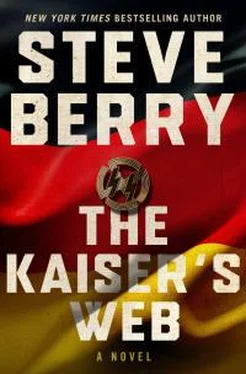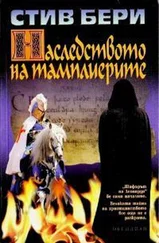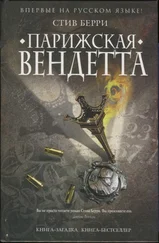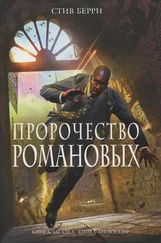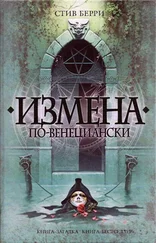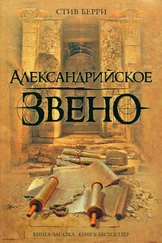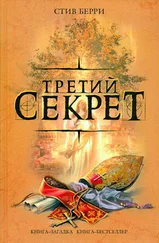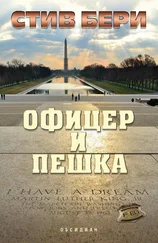Pohl snickered. “Do not believe all that you hear.”
“On that we agree. I followed your political rise, and wondered when you would finally emerge. I was well aware of the money transfers to the Eisenhuth and Herzog concerns. Bormann approved those, while in life. I authorized many myself, after he was gone.” Schüb clasped his hands behind his back. “Frau Bundeskanzlerin, everything was a ruse. All to be taken out of context by you. There never were any pictures of Eva Braun with her children. Nor were there images of Bormann with them. The Chilean deputy minister of investigations, the one who started the investigation into you, was on Theodor’s payroll. But he became a problem and did not live to enjoy whatever fruits were promised him. Martin Bormann liked to say that to win a war, don’t attack the army, or the enemy’s cities, or supply lines, or armament. To truly win a war, attack the enemy’s plan. That’s what Theodor did. To win the election, he diverted you on a chase that would lead to your own downfall. He made, though, two mistakes. The first was killing a dear friend of my sister’s a few years ago. The second was forgetting about me.”
She listened as the words came in a clipped, guttural voice. The corners of the old man’s mouth drew down as he pointed at Pohl and said, “Isabel’s death was a miscalculation on your part. A bad one.”
Pohl said nothing. But there was clear anxiety. It was interesting for her to watch as his whole world also crumbled around him.
“And there is one more thing,” Schüb said. “I am your father.”
Pohl stared with an expression that seemed to grip Schüb like a hook. Then angry laughter seeped from clenched lips. “I certainly hope not.”
Schüb seemed to ignore the insult. “Eva Braun despised Bormann. She stayed with him simply out of necessity. She sought comfort, and found it, with persons other than him. Toward the end of her life, that comfort was sought with me.”
Pohl’s face turned bland as he listened.
“She only carried the babies to term because she knew they were mine, not Bormann’s. She told me immediately after she became pregnant. There was no doubt. I only stayed with the bastard, after she died, because of your brother. He was my son and I owed it to him to protect him from that monster. Unfortunately, I did not do a good job and he died anyway. Then I was forced to deal with you.”
Schüb pointed at the smaller tomb.
“That child was a darling. He did not deserve to die so young. But there is something I never told you. At birth, when Bormann saw there were twins, he made a decision. I always told you that was because of the times, and caring for two infants in Africa would have been difficult. He told you that himself. But what he failed to mention was that he kept one. The other he discarded. ”
“I was sent to Germany to be raised a German. That’s what both you and he said.”
“Another lie told to a child not to hurt his feelings. You were the one he did not want. Until, of course, your brother died.”
“You are a liar,” Pohl declared. “A total and complete liar.”
“I wish that I were. But there are tests today that can confirm our DNA link without question. In the beginning, when you were younger, I came to actually like you. But as you became more like Bormann, I grew to detest the sight of you. You were, what, thirty when he died? A grown man who’d become him. Sadly, though I wish with all my heart it were not true, you are my issue, not his.”
Pohl seemed to be searching for the right words with which to respond. Schüb did not give him a chance to reply and turned toward her.
“And you, my dear, you have perhaps the worst fate of all. Where this wretched soul”—he motioned to Pohl—“has been granted a political reprieve regarding his father, you have the unenviable distinction of being the daughter of perhaps one of the most horrible human beings ever to live.”
A wave of vertigo swept through her as his words took hold and the reality again rushed past.
“Those same DNA tests can confirm that connection, too. I am truly sorry because, from everything I have read, you seem to be a decent person, with a good heart, who has led this nation admirably.” His voice was heavy with emotion. “Unfortunately, that will matter not. Your genes will doom you to eternal persecution.”
Her mind was a numbed blur of anguish. She knew that what Gerhard Schüb had just said was true. The man she thought her father had deceived her. The man she thought she’d loved as her husband, at least once a long time ago, had also deceived her. Even fate itself seemed to have abandoned her.
She was the daughter of Adolf Hitler.
Pohl had gone strangely silent. He stood near the largest of the sarcophagi, the one that held Bormann.
“You should not have deceived me, old man,” Pohl finally said, in nearly a whisper.
“Why not? Your entire life has been a lie. Nothing about you is true. You are pure fiction.”
She heard footsteps and turned to see Cassiopeia Vitt and Cotton Malone enter the chamber. Both carried guns.
Marie asked Cassiopeia, “What happened?”
“Engle is dead.”
“Good,” Schüb said. “He killed Isabel. Ada will be pleased.” The German motioned toward Pohl. “Meet the man who has been leading you around the world. Thankfully, you were able to leap a step ahead and discover the truth without him ever knowing.”
Marie noticed something in Malone’s eyes that years of judging other people’s reactions had taught her. “You know about me, don’t you?”
Malone nodded. “In a Swiss vault, I read a journal entry penned by Bormann that confirms how Eva Braun made her way from Germany to Spain. Then how you were given to Albert Herzog after your birth. Combined with Schüb’s firsthand knowledge, I would say there is no doubt. You are Hitler’s daughter.”
Cassiopeia stared at her with astonishment. “That’s what all this was about?”
“Apparently everyone knew,” Marie said, “but me.”
Malone stepped forward. “The question now seems to be, what’s to be done?”
“It is quite simple,” Schüb said as he reached beneath his coat and produced a pistol. The old man aimed directly at Pohl, who stood three meters away, and fired three times. The bullets sent Pohl staggering back toward the journals. With each exit wound, the glass that fronted the shelves shattered. Schüb leveled the gun again and sent two more bullets into his son’s skull. Pohl said nothing, the attack coming too quick for him to react, and his eyes went blank as the life left him. His legs then gave way and his body crumpled to the floor, ending atop shards of bloody glass.
No one moved.
Schüb tossed the gun to the floor. “I have ended the problem that I helped start. There will be no more resurrections.”
CHAPTER SEVENTY-EIGHT
Cotton stared at Schüb. He’d just witnessed a murder that ordinarily would have repulsed him, but he was glad.
“No more resurrections.”
Schüb was right.
It needed to end, and death was the only way to ensure that result. Though not linked genetically, Pohl, like Bormann, possessed a survival instinct that, above all, dominated his every thought. True, the world had changed, but in many ways it remained the same as eighty-five years ago. Hate still existed. Bigotry could be manipulated. The masses were gullible. But at least one master of political misdirection was no longer a problem.
“We need to leave,” Cassiopeia finally said to Marie.
Schüb stepped from the chamber, back out into the gallery beyond. Kurt Eisenhuth moved toward his wife and reached for her arm.
She jerked away.
Читать дальше
